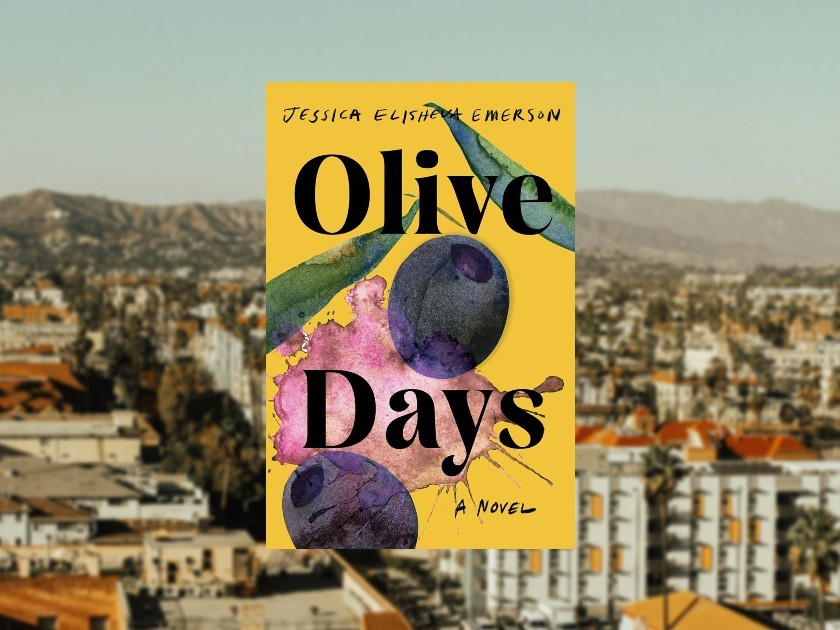
Our protagonist is writhing on the floor, anguished, begging, bargaining, baring her soul. She sobs. After years of struggling with infertility, she is pregnant with twins — her heart’s only wish for so long — but her body is traumatized. She cannot focus, cannot recapture her sweet dreams about the babies she’ll have, cannot get past the terrible pain and sickness. She alternately wishes she were dead and pleads for her life. In a wild moment of despair and boldness, she talks directly to God. “Im keyn lamah zeh anochi,” she cries. “If so, why me?”
This woman is Rebecca, mother of us all. She is struggling to understand her place in the world, and instead of easing her burden, God puts it in context. There will be greatness, God tells her. But there will be war. From here on out, there will always be pain.
I was thinking about our ancestors as I wrote the story of Rina Kirsch in my forthcoming novel, Olive Days. Was thinking about how their love of — and struggles against — law, duty, ritual, and tradition are not so different from how we struggle now.
My Rina is not up against a pregnancy, at least not when we meet her. Rather, she is anguished because her devout husband asked her about — talked her into, exhorted her toward — a wife swap in their modern Orthodox community. Reeling after being traded, she seeks to feel loved again, to feel valued and special. She seeks first in the arms of a very observant rabbi, and then in the embrace of an art professor from outside the community. Although the story of Rebecca — a story she knows intimately — is relayed to her by her non-Jewish lover in a surprising context, Rina spends far less time thinking about the text and far more time experiencing the burden of a five thousand – year tradition. Can she break free of a stifling marriage and still be the eshet chayil she was raised to be? Can she honor the laws and traditions she holds dear even as she comes to believe that no god decreed them? Can she find a way to continue to cherish the deep beauty and purpose of her community, and to live a meaningful Jewish life?
I would sit on the sidewalk in front of Bibi’s Bakery, my favorite kosher shop on the block, munching on sambusaks, rocking my kids in a wagon, and working out the story.
When I first moved to Pico-Robertson, one of Los Angeles’s many vibrant Jewish enclaves, it wasn’t long before I heard a story about a sort of modern Orthodox key party. I took someone to lunch, and then another person to coffee, and then another, listening to their stories because that’s what writers do. A key party itself doesn’t make a novel, but a character idea lodged in my mind and stuck with me for many years. I would sit on the sidewalk in front of Bibi’s Bakery, my favorite kosher shop on the block, munching on sambusaks, rocking my kids in a wagon, and working out the story. At first it was a love triangle, but over time it developed into a romance between two unhappy people trying to self-actualize, define their own identity, and liberate themselves.
It took me a decade to write the book — I was raising three kids, working, putting food on the table — and in that time, a phenomenon was growing in modern culture: the ascendency of polyamory. When I started writing the book, my friends were chattering about swingers parties and complaining about mixed Greek (poly-) and Latin (-amory) root words. By September 2024, when my book will be published, most people will be familiar with the concept of open relationships; outlets like The New Yorker are running breathless headlines about how it became so popular.
Back in 2012, my Rina would have never guessed that her miserable experience was in fact part of a trend. And that’s what makes her so interesting. As a human, I have no problem with anything that consenting adults choose to do with their bodies or how they decide to give and receive love. As a writer, though, I couldn’t help but wonder if — at least for this one woman — a single night could set off an existential crisis, a tug-of-war between the laws (including laws of purity) that govern her life, and her desire to have agency over her own, well, desire.
And while I wouldn’t dream of giving away the ending, it won’t surprise you to know that, like our matriarchs, Rina finds unexpected boldness and strength radiating from within. And like Rebecca, she finds herself in moments of despair, crying out, Why me? She discovers, sure as any truth she was raised to believe, that from here on out, there will always be pain.